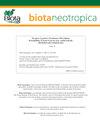巴西渔业监测:没有渔业统计如何实现2030年议程?
IF 1.2
4区 环境科学与生态学
Q3 BIODIVERSITY CONSERVATION
引用次数: 0
摘要
每一项涉及自然资源开发的活动,如捕鱼,都需要根据监测程序的信息进行组织和实施,以便进行持续的评估。随着巴西渔业压力的增加,人们对渔业监测项目的重要性以及它们如何为保护决策提供信息和帮助的理解仍然有限。根据关于渔业和参与性养护的文献,我们提请注意有必要编制关于国家渔业部门的资料,以便改善该国的渔业。鉴于需要收集关于正在开发的渔业资源的信息,并根据《2030年可持续发展议程》确定潜在的替代渔业并开展各种部门分析,我们在本文件中介绍并讨论了巴西缺乏连续捕捞监测系统及其对该国渔业可持续性的影响。本文章由计算机程序翻译,如有差异,请以英文原文为准。
Fisheries monitoring in Brazil: How can the 2030 agenda be met without fisheries statistics?
Abstract Every activity that involves exploitation of natural resources, such as fishing, needs to be organized and conducted based on information from monitoring programs to allow continuous evaluation. With the increasing fishing pressure in Brazil, the understanding of the importance of fisheries monitoring programs and how they can inform and assist in conservation decision-making remains limited. Based on the literature on fisheries and participatory conservation, we call attention to the need to generate information on the national fisheries sector in order to improve fisheries in the country. Given the context of the need to generate information on fishing stocks under exploitation, as well as to identify potential alternative fisheries and carry out various sectoral analyses in compliance with the 2030 Agenda for Sustainable Development, we present and discuss in the present paper the lack of a system of continuous fishing monitoring in Brazil and its effects on the fisheries sustainability in the country.
求助全文
通过发布文献求助,成功后即可免费获取论文全文。
去求助
来源期刊

Biota Neotropica
BIODIVERSITY CONSERVATION-
CiteScore
2.90
自引率
16.70%
发文量
0
审稿时长
4-8 weeks
期刊介绍:
BIOTA NEOTROPICA is an electronic, peer-reviewed journal edited by the Program BIOTA/FAPESP: The Virtual Institute of Biodiversity. This journal"s aim is to disseminate the results of original research work, associated or not to the program, concerned with characterization, conservation and sustainable use of biodiversity within the Neotropical region.
Manuscripts are considered on the understanding that their content has not appeared, or will not be submitted, elsewhere in substantially the same form, because once published their copyrights are transferred to BIOTA NEOTROPICA as established in the Copyright Transfer Agreement signed by the author(s).
 求助内容:
求助内容: 应助结果提醒方式:
应助结果提醒方式:


